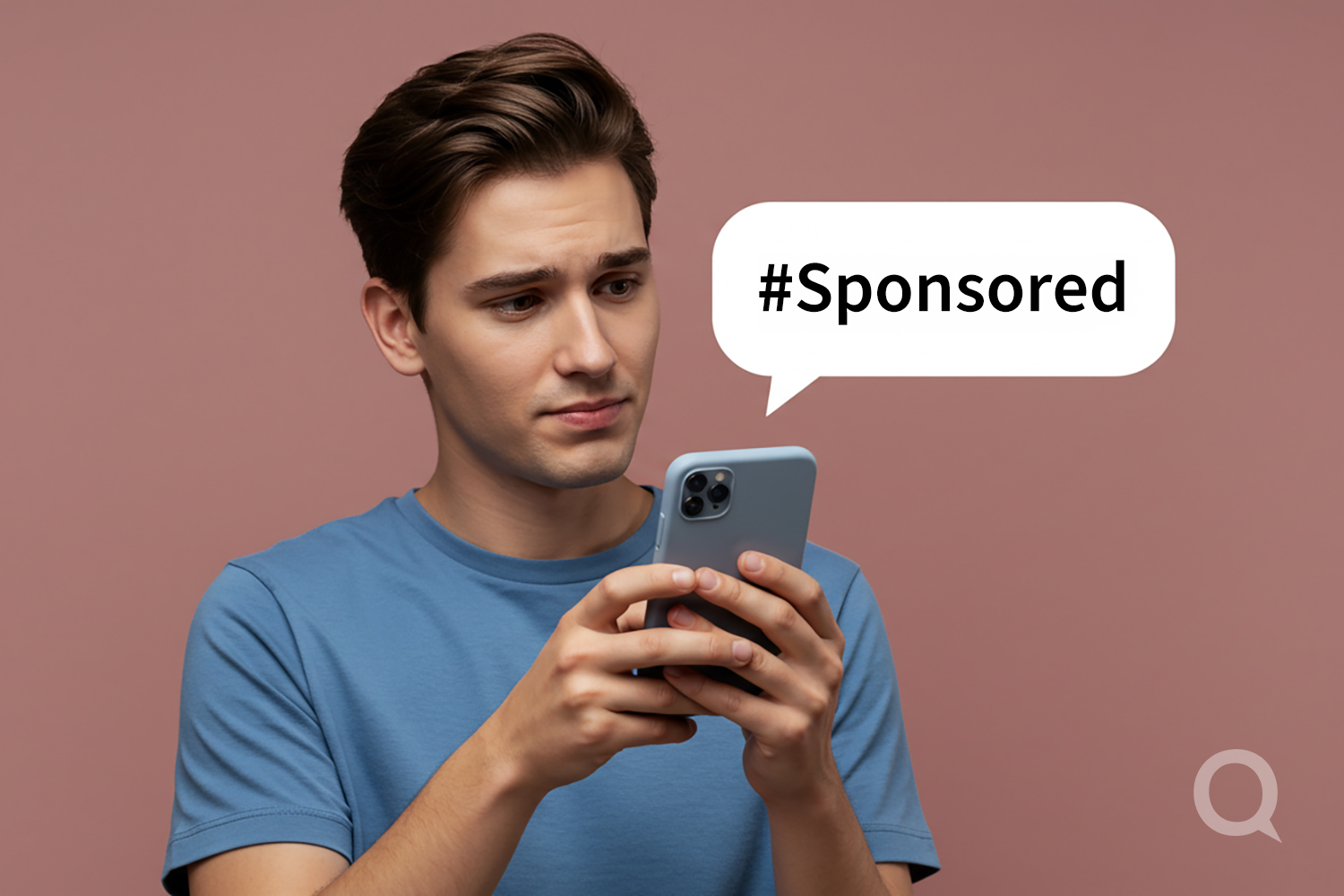Why Consumers No Longer Trust Influencers (And What That Means for Your Brand)

That number is a wake-up call for any business investing in influencer partnerships. It’s not that influencer marketing is dead—it’s that the rules have changed. To succeed, you need to understand where consumer trust is shifting, and what that means for your growth strategy.
From Authentic Endorsements to Paid Promotions
When influencer marketing first gained traction in the early 2000s, it was built on authenticity. Creators had loyal followings who trusted their opinions, whether it was about makeup, fitness, travel, or technology. A recommendation felt personal, not paid.
But success fueled scale. By 2020, the influencer market was worth an estimated $10 billion globally. That figure is expected to triple by the end of 2025. The downside? Oversaturation. Feeds are now packed with sponsored content, and audiences have grown more skeptical.
I summed it up this way in Clutch’s article:
“It becomes less ‘I love this’ and more ‘I’m paid to say I love this.’”
And that’s exactly the problem. When enthusiasm feels transactional, credibility drops.
What the Data Says
Clutch surveyed 277 consumers on their feelings about influencer recommendations. The results paint a clear picture of shifting sentiment:
- Only 12% trust an influencer recommendation once “#Sponsored” is disclosed
- 41% feel uncertain about influencer credibility overall
- 47% don’t trust influencer product recommendations at all
In other words: nearly half of consumers are skeptical before they even click.
What This Means for Your Business
If you’re a small or mid-sized business (SMB), chances are you don’t have unlimited ad budgets. Influencer marketing may have felt like a shortcut to visibility—a way to “hack” brand awareness. But if audiences are tuning out, those dollars won’t deliver the ROI you’re counting on.
That doesn’t mean influencer marketing is a lost cause. It means you need a more strategic approach.
Smarter ways to use influencers today:
- Micro-influencers > Mega-influencers
Smaller creators (5,000–50,000 followers) often have deeper trust with their audiences. Their recommendations carry more weight than celebrity-style endorsements. - Long-term partnerships > One-off posts
A single Instagram shoutout won’t build credibility. Ongoing relationships create a more authentic association with your brand. - Customer advocacy > Paid content
Sometimes your best influencers are already your customers. Encouraging user-generated content or testimonials can be more powerful than paid promotion. - Integrated strategy > Standalone tactic
Influencers should be one piece of your brand’s marketing mix—not the whole puzzle. When paired with SEO, PPC, and owned content, their impact grows exponentially.
Why Authenticity Always Wins
At the heart of this issue is authenticity. Consumers can tell when someone is promoting something because they believe in it versus because they were paid to. That’s why brands that focus on genuine storytelling and customer experience tend to win, even without influencers.
For SMBs especially, investing in your brand voice, website experience, and long-term visibility (SEO, content, reputation management) builds a foundation that outlasts trends. Influencer campaigns can spark awareness, but it’s your brand story that keeps customers engaged.
FAQ: Influencer Marketing in 2025
- Is influencer marketing still worth it?
Yes—but only if it’s approached strategically. Blindly paying for shoutouts is no longer effective. Focus on micro-influencers, authenticity, and integration with your broader marketing strategy. - How do I know if an influencer is a good fit for my brand?
Look beyond follower counts. Engagement rate, audience demographics, and alignment with your brand values matter more than raw numbers. - Should small businesses use influencers at all?
If your budget is tight, prioritize building your own brand assets first (website, SEO, social presence). Influencers can add value later, but they shouldn’t replace foundational brand growth efforts. - What are alternatives to influencer marketing?
Content marketing, SEO, PPC, social ads, referral programs, and customer advocacy often deliver stronger ROI—especially when your audience is skeptical of sponsored content.
The Bottom Line
Influencer marketing isn’t dead—it’s evolving. As more consumers tune out “#Sponsored” posts, businesses need to rethink how they invest their time and budget.
The opportunity isn’t just in renting someone else’s audience—it’s in building your own trust and visibility. When you lead with brand-first strategies, you’ll stand out from the noise and create growth that lasts.
Want to dive deeper into the data? Check out the full Clutch article here:
https://clutch.co/resources/influencer-sponsorships#the-trust-gap-what-people-are-saying-about-influencers
And if you’re ready to explore how a brand-first approach can help your business grow with or without influencers, let’s talk. At Mystique, we help businesses like yours cut through the clutter and
Boldly Grow.

President
MYSTIQUE BRAND COMMUNICATIONS
416-441-2666 Ext 14.


